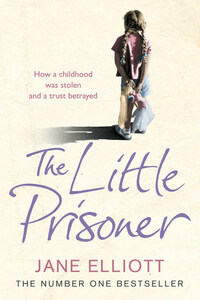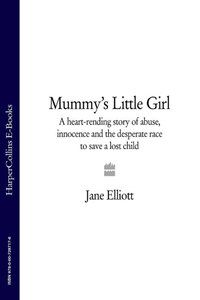As a child I never thought anyone would believe what I had to say, so when my book went straight to number one in the hardback bestseller charts and everyone was talking about how brave I was to tell my story, I found it hard to take in. One minute I would be hugging myself with excitement, and the next I would be frightened of what might happen now I’d let the genie out of the bottle.
Initially I wanted to write the book because I knew how much I’d been helped by reading A Child Called It by Dave Pelzer. If just one child who was being abused read my story, I reasoned, and felt inspired enough to speak out and end the cycle of bullying in their own life, it would be worth doing.
Every time my publishers rang to say they were printing more copies to meet the demand, I imagined how many more people would be reading it and maybe seeing that it was possible for them to turn on the bullies and regain control of their lives.
The actual writing process was hard because it stirred up one or two memories and emotions that I’d been trying to forget about. But now I’ve shouted out to the whole world all the things I was told had to be kept secret, it feels as though a lead weight has been lifted off my shoulders.
However hard I’d been trying to suppress the memories over the years, they were always there. I could distract myself with family chores, a bottle of wine or a packet of cigarettes, but that didn’t make the hurt go away for more than a few hours. Facing up to the memories and telling the whole story was like opening the curtains and windows on a sunny day and letting light and a fresh breeze into a dark room, stale with poisonous air.
One of my biggest worries was how my children would react to the book. They’re both still young and although they knew that something bad had happened in my childhood they didn’t know any details. I’ve told them the book contains material they might find upsetting and that I would rather they didn’t read it until they were older, and so far they’ve managed to resist the temptation – I think. The excitement of hearing their mum talking on the radio and seeing the book all over the shelves in the supermarket and W H Smith seems to have more than compensated them for any worries it might have caused them.
The hard thing for them is that they’re not allowed to tell their friends about it. This was particularly tough when it was at the top of the charts and they were longing to share the excitement that was going on within our little family group. But they’re all too aware of the dangers of disclosing my true identity and of my whereabouts being discovered by my family. They saw what happened to their mum last time her brothers caught up with her, and they don’t want to take the risk of that happening again. They keep telling me how proud of me they are. I just hope they realize how proud I am of them as well.
My husband has also had to adjust from being the sole worker in the family to having to stay home a lot to look after the girls while I was off at publishers’ meetings and giving interviews, but there have been some big compensations for him too. The sense of satisfaction I got from seeing how well the book was doing made me a lot easier to live with (not that I’m not still a bit of a nightmare for him some days!), and we have been able to pay off a few of the debts we were building up and improve our lives materially.
I don’t think he really believed the book would be a great success any more than I did, but it’s surprising how quickly we both got used to having a number one hit and started to feel disappointed when it got knocked down to number two or three!
The charts are full of stories of childhood abuse now and there have been a lot of articles in the press speculating on why so many people want to read about such a difficult subject. I don’t think it is the abuse they want to hear about, but the fact that some of the children who suffer from it manage to survive and ultimately triumph. They want to be shocked at the start of the book, crying in the middle and exultant at the end.
I suspect that the audiences for books like The Little Prisoner fall into two categories. Firstly there are those who come from stable, happy homes, who can’t understand how anyone can abuse a child, and want to find out about a world they can barely imagine. Secondly, there are those who suffered something similar themselves and find some comfort in discovering they are not alone in the world. They get some inspiration from discovering that not only is it possible to go on to lead happy and normal lives, but that you can actually turn all that misery into something positive.










